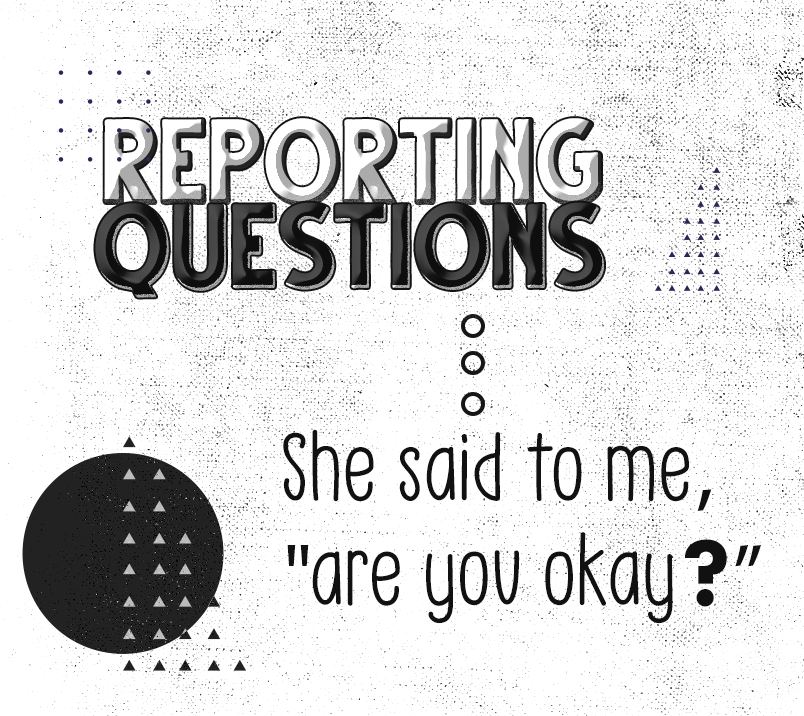3. Reporting Questions
IMPORTANT : I want you to know that before we start this chapter off , it is of utmost importance that you know what direct and indirect speech is. So, I urge you to check out m...

===Direct and Indirect Speech===
Direct and Indirect Speech Rules
In the English language, there are two ways of conveying what someone else has said: direct/quoted speech and indirect/ reported speech.
Direct speech
is spoken or written text that reports speech or thought in its original form phrased by the original speaker; in narrative, it is usually enclosed in quotation marks but can be enclosed in guillemots. The cited speaker is either mentioned in the "he/she says" or implied.
Direct speech examples:
• He said, “I won’t be coming home tonight”.
• Ram said, “There’s a cow outside the house.”
• “There’s a cockroach in the kitchen!” screamed Hari.
• She said, “What time will you be in the office?” and I said, “I don’t know! “
Note that in this type of speech, a comma is most often used before starting the exact quote within the inverter commas.
Indirect Speech
In linguistics, indirect speech (also reported speech or indirect discourse) is a grammatical mechanism for reporting the content of another utterance without directly quoting it. For example, the English sentence.
Indirect speech examples:
• She told us that she wouldn’t be coming to the meeting that evening
• Mom told him that she was sad.
• He told me that he was tired.
• Dad was speaking on the telephone.
Note that the verb tense necessarily changes in reported speech. This is because when we report speech, we are talking, obviously, about something that was said in the past. Hence, it becomes necessary to use the past tense of the verb.
